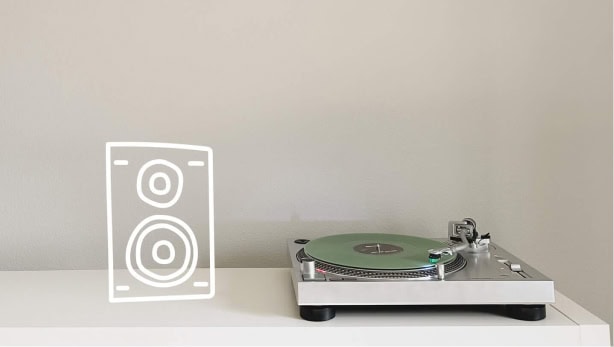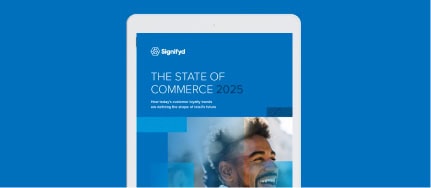Accepts more orders and ships them anywhere
Nissan 240SX enthusiasts Donny Ton and Dung Nguyen were studying information systems in 2002 when they decided to incorporate their love of cars, photography, and technology. Ton was 23 and Nguyen was 19. “At the time, no one had high quality pictures of car parts from Japan,” says Ton, who is now Operations Director for the pair’s 12 million-dollar-a-year, Los Angeles-based, FR Sport. “We were just two kids who were passionate about cars and technology – so we put those two together.”
But the Great Recession dampened their spirits, as did customers who actively sought lower quality parts from China. And then there were chargebacks. Chargebacks at FR Sport’s ecommerce store and eBay took a lot of the fun out of the business, Ton says. Online thieves were particularly partial to the platform’s high ticket items like turbochargers & supercharger kits. “Those parts are high value and somebody can sell them for a quick buck.”
And of course, the GoPros. “GoPros were one of the hottest things they liked to steal – it’s easy to get rid of. Car parts, not so much,” says Ton. “People would buy these parts and get them shipped to their houses. Then they would say they never got it,” says Ton. “Another popular fraud method was to get a credit card and call in a fake order that was shipped to an abandoned house or business.”
When business slowed, aggressive marketing helped FR Sport expand its client list. In five years, sales doubled. But expansion came at a price. “Since we started advertising to acquire customers, we couldn’t afford to turn any away because each customer had an acquisition cost,” says Ton. Still, the pair tightened up their online security to fight fraud, and orders without confirmed addresses were declined. They also limited the number of high ticket items per order that they would ship to a single customer at a time.
“We went through with all sorts of fraud tools, including IP location verification. Whatever we could get our hands on,” says Ton. “We thought that keeping fraud under 2 percent of orders was reasonable.”
If an order was classified as suspicious, an order processor would review it. “If there were too many red flags, we wouldn’t ship the order. For instance, if you bought three superchargers, we would likely cancel the order, says Ton. “We would use IP location. If your IP was more than 50 miles away from your shipping address, we would not process the order. We also monitored email addresses and account creation dates. If the account was new and placed a large order, we would manually review it.”
“We used programs like PayPal Verified so that we only shipped to verified addresses. They would cover that for us. So we pushed a lot of business to PayPal. We also only shipped to verified billing addresses. We built our own suite of tools, but it didn’t give us the protection – the umbrella of protection – that we needed. It was pieces here and there.”
FR Sport’s fraud restrictions also dampened customer experience. “They wanted items shipped to their office. They wanted items shipped somewhere else – their friend’s house, their mechanic, places like that. We weren’t able to do that for them.”
“We lost customers because they weren’t at home to receive packages, and eventually, the packages were returned. Roughly 20 percent of orders had different shipping and billing addresses. Some customers corrected their information, but we don’t know how many customers we lost because of these issues,” says Ton. “There were significant opportunity costs.”
Customer relationships were strained as a result. “I felt like we were hassling the customer to confirm their address so we could ship. We alienated a lot of our customers,” says Ton. “That’s why we looked for a solution. It took some time for us to figure it out.”
Ton says he talked to three fraud prevention companies before landing with Signifyd. But unlike the other two, Signifyd guaranteed each online sale it approved. After evaluating a prospective customer’s purchase and payment credentials in real-time, Signifyd could determine if the order was genuine, and they stood behind their decision it if it wasn’t. Signifyd is able to do this by leveraging real-time machine learning that incorporates external 3rd party data and compares each buyer’s credentials to transactions across a database of thousands of merchants globally.
With superior data and specialized risk analysts, Signifyd instantaneously approves and guarantees protection for FR Sport on more orders than Ton and Nguyen could manage by themselves, even though both company principals had degrees in information systems and wrote their own fraud containment code.
The result: since signing on with Signifyd a year ago, FR Sport’s customer rating has climbed from 8.9 to 9.2, says Ton. “That’s a big deal for us because now the customer doesn’t have any hassles when he places an order. We don’t delay orders. Most of our orders now ship out the same day because there’s no need confirm the address and there’s no need to call the bank and do a three-way call,” he says.
Customer happiness is another result, says Ton. “It has definitely gone up since we switched to Signifyd.” Sales are up too. 20 percent, I would say. That’s a 2 million dollar increase, potentially, because we’re able to service all these customer orders now.”
“Our customer satisfaction has increased and we’re seeing more repeat business since we now ship anywhere – to their office, for example – so customers are happy to purchase from us again. “It has made a big difference in our business, and compared to 2016, 2017 is on track for 10-15-percent growth,” says Ton.
Signifyd’s guarantees have had other positive effects as well. Ton and Nguyen say they no longer worry about losing their credit card processing privileges. And that one employee who used to spend 90 percent of his time spotting, processing and then weeding out potentially fraudulent orders now does something more productive. “He still looks at special cases, orders that raise red flags, but Signifyd has basically freed up one person,” says Ton.
As for fraud, the certainty that Signifyd has brought to FR Sport has been a relief, Ton says. “We were very tight on security, so we we were able to reduce our losses. In the past, we had a few chargebacks a month that could be $5,000-$10,000 each. It could have been much worse, but we were just very careful about screening our orders.”
“What I really like about Signifyd is that you’re moving from an uncertain amount of risk to a very controllable amount of risk,” says Ton. “We’re trying to operate a sustainable business. In one month, if we were careless with screening, we could have $20,000 or $30,000 in chargebacks. That could kill our cash flow and set us back for months.”
Unlike 2004, selling high performance auto parts today is very competitive, Ton says. “We’re flying razor thin, so we have to be efficient at everything we do. But we love the industry and what we do. And let’s face it, car people are some of the most amazing and passionate group of people out there.”








